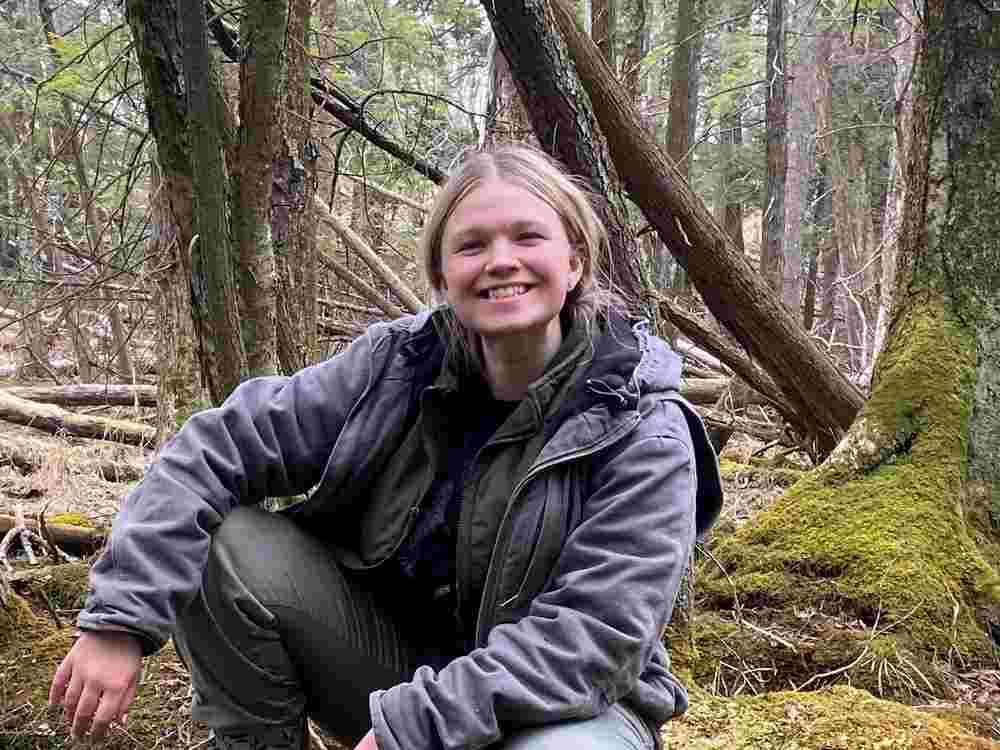Spotlights
Keely Dunham defends thesis on using eDNA to track Hemlock Woolly Adelgid

Keely Dunham successfully defended her Master's thesis on July 12, 2024 titled "Using airborne eDNA to assess hemlock woolly adelgid (Adelges tsugae) infestations and their impact on Michigan coastal forests". Her committee members included Dr. Charlyn Partridge as well as Dr. Ali Locher and Dr. Amy Russell from GVSU's Department of Biology .
Hemlock woolly adelgid (HWA) is an invasive insect causing the decline of eastern hemlock trees, which support unique ecosystems in Michigan. There is a strong collaboration across several conservation organizations and entities to survey and manage HWA with insecticides to prevent the further spread of the insect. Keely's thesis research used molecular approaches to answer questions about HWA. First, she determined a low cost and time effective management tool to quantify infestation levels which can help managers time pesticide retreatments or prioritize treatment of infested sites. Her second goal was to use airborne environmental DNA, which is genetic material collected from air, to characterize and compare plants and arthropods found in infested forests and non-infested forests. She found that the presence of HWA may be impacting arthropod communities, and she expects plant and arthropod communities to continue to change as more hemlocks die. This information serves as baseline data so managers can track how hemlock forests change over time as HWA spreads. This thesis helps our understanding of HWA management and the long-term ecological consequences of widespread hemlock loss in the Great Lakes region.
After completing her final thesis submission, Keely's future work plans include anything involved with conservation or natural resources management!
Share this spotlight
Return to the listing of spotlights.
